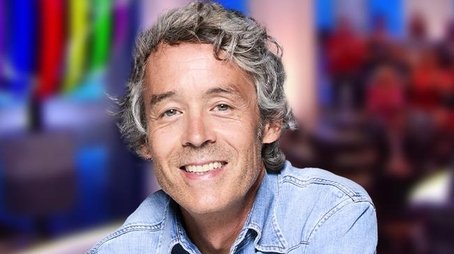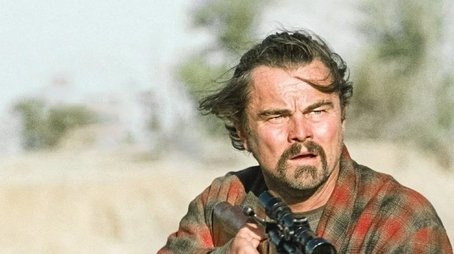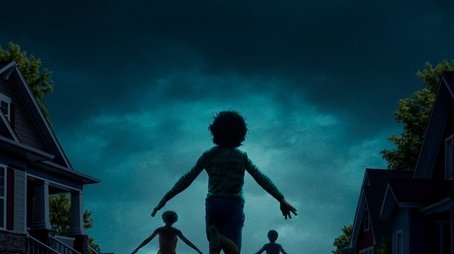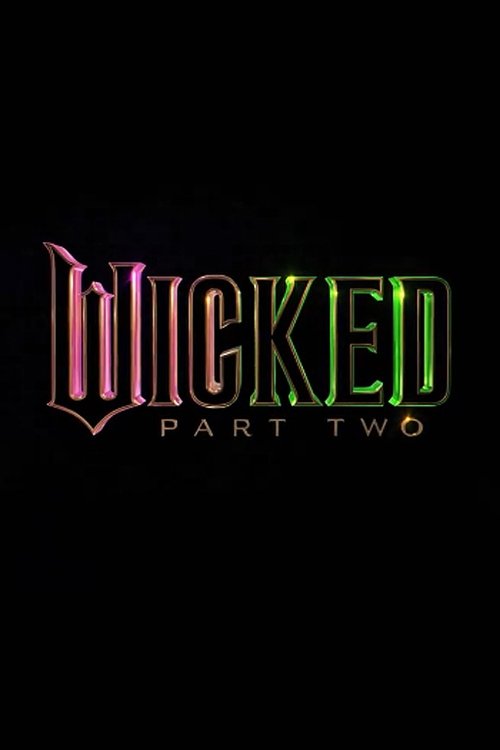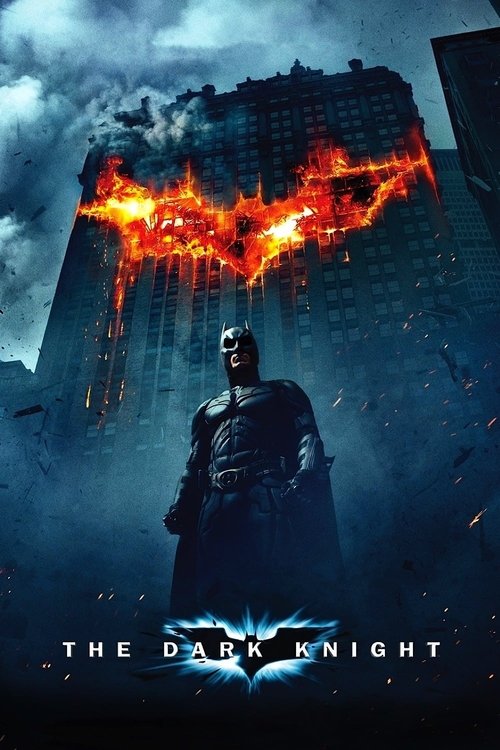Ask Your Own Question
What is the plot?
"Quotidien" is a French television program that premiered in 2016, hosted by Yann Barthès. The show is a daily talk show that combines news, interviews, and humorous segments, focusing on current events and pop culture. It features a mix of serious discussions and light-hearted commentary, often including celebrity guests and various segments that engage with the audience.
The show begins with Yann Barthès introducing the day's topics, often with a humorous twist. He engages the audience with witty remarks and sets the tone for the episode. The opening segment typically includes a montage of clips from the news, showcasing the most significant events of the day, which Barthès comments on with a blend of satire and insight.
As the episode progresses, Barthès often invites guests to discuss specific topics in more depth. These guests can range from politicians to celebrities, and their interactions with Barthès are characterized by a mix of serious dialogue and playful banter. The conversations are designed to provide viewers with a deeper understanding of the issues at hand while keeping the atmosphere light and entertaining.
Throughout the show, various segments are interspersed, including comedic skits, social media highlights, and audience interactions. These segments serve to break up the more serious discussions and keep the audience engaged. The humor is often sharp and relevant, reflecting the current cultural climate and resonating with the viewers.
In addition to the main segments, "Quotidien" often features recurring segments that focus on specific themes or issues. For example, there may be a segment dedicated to fact-checking statements made by public figures, or a humorous take on viral internet trends. These segments are crafted to provide both entertainment and information, making the show a unique blend of news and comedy.
As the episode nears its conclusion, Barthès typically summarizes the key points discussed and may offer a final humorous take on the day's events. The show often ends with a light-hearted segment or a teaser for the next episode, encouraging viewers to tune in again.
Overall, "Quotidien" is structured to provide a comprehensive look at current events while maintaining an entertaining and engaging format. The combination of serious discussions, humor, and audience interaction creates a dynamic viewing experience that resonates with a wide audience.
What is the ending?
"Quotidien," a French television show that premiered in 2016, does not have a traditional narrative structure with a defined ending like a scripted film or series. Instead, it is a daily talk show that features various segments, interviews, and discussions on current events, culture, and entertainment. Each episode presents a fresh take on the day's news and includes guest appearances, comedic sketches, and commentary from the host, Yann Barthès, and his team.
In a more expanded narrative format, the show unfolds as follows:
The episode begins with Yann Barthès entering the studio, greeted by the enthusiastic applause of the audience. He takes a moment to engage with the viewers, setting the tone for the day's discussions. The camera captures his charismatic smile and the energy in the room, creating an inviting atmosphere.
As the show progresses, Barthès introduces the first segment, which focuses on a significant current event. The screen transitions to clips and images that illustrate the topic, while Barthès provides insightful commentary. His tone is both serious and light-hearted, reflecting the dual nature of the show--addressing important issues while maintaining a sense of humor.
Next, the show features a guest interview. The guest, a well-known figure in French culture, sits across from Barthès. The conversation flows naturally, with Barthès asking probing questions that reveal the guest's personal experiences and opinions. The camera captures the guest's expressions, showcasing their vulnerability and passion as they discuss their work and the challenges they face.
Following the interview, the show shifts to a comedic sketch that parodies a recent event. The cast members, dressed in exaggerated costumes, deliver punchlines that elicit laughter from the audience. The scene is vibrant, filled with colorful props and energetic performances, highlighting the show's ability to blend humor with commentary.
As the episode nears its conclusion, Barthès reflects on the day's discussions, summarizing key points and encouraging viewers to think critically about the topics covered. He emphasizes the importance of staying informed and engaged with the world around them. The camera zooms in on his earnest expression, conveying his genuine concern for the audience's understanding of current affairs.
In the final moments of the show, Barthès thanks the audience for their participation and invites them to tune in for the next episode. The screen fades to black, leaving viewers with a sense of anticipation for what is to come.
Throughout the episode, the main characters--Yann Barthès and his guests--navigate the complexities of contemporary issues, showcasing their motivations to inform, entertain, and connect with the audience. Each segment builds upon the last, creating a cohesive narrative that reflects the show's mission to engage with the world in a meaningful way. The fate of each character is not defined in a traditional sense, as they continue to evolve and contribute to the ongoing dialogue presented in future episodes.
Is there a post-credit scene?
"Quotidien," the French talk show that premiered in 2016, does not feature post-credit scenes in the traditional sense often found in movies or some television series. Instead, the show typically concludes with a final segment that may include humorous commentary, a recap of the episode's highlights, or a light-hearted interaction between the host, Yann Barthès, and his guests or the audience.
The atmosphere during these closing moments is often relaxed and jovial, allowing for a brief reflection on the topics discussed throughout the episode. The audience is left with a sense of camaraderie and engagement, as Barthès often invites viewers to tune in for the next episode, maintaining a connection with the audience.
Overall, while there are no specific post-credit scenes, the ending segments serve to wrap up the show in a way that feels complete and satisfying, leaving viewers with a smile.
What are the main character dynamics in Quotidien?
In Quotidien, the main character dynamics revolve around the interactions between the host, Yann Barthès, and his team, including journalists and correspondents. The chemistry between Yann and his co-hosts, such as Marie Portolano and Hugo Clément, creates a lively atmosphere. Their banter often reflects their differing perspectives on current events, showcasing a blend of humor and seriousness. The emotional undertones of their discussions reveal their commitment to delivering news while maintaining a light-hearted approach.
How does Yann Barthès handle controversial topics in Quotidien?
Yann Barthès approaches controversial topics with a mix of humor and critical analysis. In various episodes, he tackles sensitive issues such as political scandals or social injustices, often using satire to highlight the absurdity of certain situations. His emotional state during these segments oscillates between seriousness and levity, as he aims to engage the audience while provoking thought. The reactions of his team members also contribute to the overall tone, as they often express their own views, creating a dynamic dialogue.
What role do the correspondents play in Quotidien?
The correspondents in Quotidien, such as Paul Larrouturou and Martin Weill, play a crucial role in providing on-the-ground reports and unique perspectives on various topics. Their segments often include interviews with the public or experts, which add depth to the discussions. The correspondents' emotional investment in their stories is palpable, as they navigate challenging situations and seek to uncover the truth. Their interactions with Yann and the studio team create a sense of camaraderie and shared purpose.
How does Quotidien incorporate humor into serious news stories?
Quotidien skillfully incorporates humor into serious news stories through clever editing, comedic sketches, and witty commentary. Yann Barthès often uses irony and sarcasm to lighten the mood while addressing heavy topics. The emotional contrast between the gravity of the news and the light-hearted presentation creates a unique viewing experience. This approach not only entertains but also encourages viewers to reflect on the issues at hand, as the humor often highlights the absurdities of the situations being discussed.
What are some memorable guest appearances on Quotidien?
Quotidien features several memorable guest appearances that add excitement and variety to the show. Notable guests include politicians, celebrities, and cultural figures who engage in discussions with Yann Barthès. These interactions often reveal the guests' personalities and viewpoints, creating a dynamic atmosphere. The emotional responses from both the guests and the audience can range from laughter to serious contemplation, as the conversations often touch on relevant societal issues.
Is this family friendly?
"Quotidien," produced in 2016, is a French television talk show that features a mix of news commentary, interviews, and entertainment segments. While the show is generally aimed at a broad audience, including families, there are certain aspects that may be considered objectionable or upsetting for children or sensitive viewers.
-
Political Satire: The show often includes sharp political commentary and satire, which may involve discussions of controversial topics or figures. This could be confusing or distressing for younger viewers who may not fully understand the context.
-
Adult Humor: Some segments may contain humor that is more suited for an adult audience, including innuendos or references that children might find inappropriate or difficult to grasp.
-
Current Events: The show covers current events, including serious news stories that may involve violence, tragedy, or social issues. These topics can be upsetting for sensitive viewers, especially if they are presented in a graphic or intense manner.
-
Emotional Interviews: Interviews with guests discussing personal or sensitive topics can evoke strong emotions, which might be overwhelming for younger audiences or those who are particularly sensitive.
-
Cultural References: The show often includes references to French culture, politics, and social issues that may not resonate with all viewers, potentially leading to misunderstandings or discomfort.
Overall, while "Quotidien" can be entertaining and informative, parents may want to preview episodes or discuss content with their children to ensure it aligns with their values and sensitivities.

